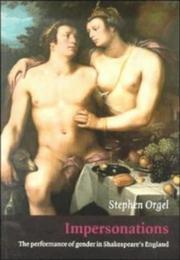| Listing 1 - 8 of 8 |
Sort by
|

ISBN: 8431321881 9788431321888 Year: 2004 Volume: 47 Publisher: Pamplona EUNSA
Abstract | Keywords | Export | Availability | Bookmark
 Loading...
Loading...Choose an application
- Reference Manager
- EndNote
- RefWorks (Direct export to RefWorks)

ISBN: 0859912647 Year: 1989 Publisher: Cambridge Brewer
Abstract | Keywords | Export | Availability | Bookmark
 Loading...
Loading...Choose an application
- Reference Manager
- EndNote
- RefWorks (Direct export to RefWorks)
Poetry --- Old French literature --- Thematology --- Amour dans la littérature --- Deguisement dans la litterature --- Disguise in literature --- Liefde in de literatuur --- Vermomming in de literatuur --- Tristan (Legendary character) --- Romances --- History and criticism --- French poetry --- To 1500 --- Identity (Psychology) in literature
Book
ISBN: 9782745320773 2745320777 Year: 2010 Volume: 101 Publisher: Paris Champion
Abstract | Keywords | Export | Availability | Bookmark
 Loading...
Loading...Choose an application
- Reference Manager
- EndNote
- RefWorks (Direct export to RefWorks)
JEUX DE MASQUES, JEUX DE RUSES DANS LA LITTERATURE FRANCAISE MEDIEVALE. XIIE-XVE SIECLE. Motif récurrent des textes littéraires médiévaux, le masque en désigne plusieurs aspects. À part le trucage d'identité d'un personnage qui change d'apparence en adoptant des vêtements propres à une certaine catégorie sociale, la contrefaçon de l'image peut constituer une interrogation de l'essence biologique indiquant le dépassement de soi-même et la redéfinition de l'être humain s ous un angle spirituel. D'un autre côté, le déguisement reflète le discours sournois que le personnage masqué invente en aimantrévéler une partie de la vérité. Enfin, le masquage signifie aussi les stratégies rhétoriques à travers lesquelles la voix de l'auteur avance sur la scène du discours et tente de convaincre l'auditoire ou le lecteur d'une réalité qui mêle enseignement mora l, dimension autobiographique et plaisir de composer. Nous proposons une analyse de ces multiples facettes dans une perspective se rapportant non seulement à une vaste période chronologique, du XIIe au XVe siècle, mais aussi à une variété de genres littéraires. En effet, des correspondances s'affirment entre des œuvres aussi diverses queLe Charro i de Nîmes, La Prise d'Orange, Les Enfances Vivien, La Vie de Saint Alexis, La Belle Hélène de Constantinople, Le Roman de Silence, La Mutacion de Fortune, La Cité des Dames, la poésie de Villon, Trubert, La Farce de Maître Pathelin. Le lien entre ces textes permet d'observer un recoupement des valeurs du masque . La dimension symbolique renvoie ainsi à une valeur narrative, à son tour indissociable d'une valeur discursive. Cela mène en outre à toute une problématique de la représentation de l'auteur dans le texte. Le déguisement illustre alors la conscience créatrice qui, au-delà du caractère théâtral permettant l'accomplissement de l'œuvre littéraire médiévale, joue avec les limites du langage et avec le pouvoir mystifiant du mot.
Old French literature --- Thematology --- anno 1100-1199 --- anno 1200-1499 --- French literature --- Masks in literature. --- Disguise in literature. --- Transvestism in literature. --- Littérature française --- Masques dans la littérature --- Déguisement dans la littérature --- Travestisme dans la littérature --- History and criticism. --- Histoire et critique --- Litterature francaise --- Masques dans la litterature --- Deguisement dans la litterature --- Travestisme dans la litterature --- Cross-dressing in literature. --- Cross-dressing in literature --- Littérature française --- Masques dans la littérature --- Déguisement dans la littérature --- Travestisme dans la littérature

ISBN: 0878059989 Year: 1997 Publisher: Jackson, Miss. University Press of Mississippi
Abstract | Keywords | Export | Availability | Bookmark
 Loading...
Loading...Choose an application
- Reference Manager
- EndNote
- RefWorks (Direct export to RefWorks)
That Faulkner was a "liar" not just in his writing but also in his life has troubled many critics. With psychopathological imposture-theories they have explained his numerous "false stories," particularly those about military honors he actually never earned and war wounds he never sustained. The drawback of this critical approach is that it reduces and oversimplifies the complex psychological and aesthetic phenomenon of Faulkner's role-playing. Instead, this study by one of the most acclaimed international Faulkner scholars takes its cue from Nietzsche's concept of "truth as a mobile army of metaphors" and from Ricoeur's dynamic view of metaphor and treats the wearing of masks not as an ontological issue but as a matter of discourse. Honnighausen examines Faulkner's interviews and photographs for the fictions they perpetuate. Such Faulknerian role-playing he interprets as "a mode of organizing experience" and relates it to the crafting of the artist's various personae in his works. His conclusion, a comparative view of cultural nationalism and international regionalism in the Thirties, will lead readers to a new understanding of The Hamlet and of Faulkner's self-portrait of the artist as a Mississippi farmer.
Faulkner, William --- Deguisement dans la litterature --- Disguise in literature --- Jeux de rôle dans la litérature --- Metafoor --- Metaphor --- Métaphore --- Parabole --- Role playing in literature --- Rollenspel in de literatuur --- Vermomming in de literatuur --- Metaphor. --- Role playing in literature. --- Disguise in literature. --- English --- American Literature --- Languages & Literatures --- Faulkner, William, --- Literary style. --- Style [Literary ]
Book
ISBN: 2852100118 Year: 1982 Volume: no 11 Publisher: Paris Minard
Abstract | Keywords | Export | Availability | Bookmark
 Loading...
Loading...Choose an application
- Reference Manager
- EndNote
- RefWorks (Direct export to RefWorks)
Thematology --- French literature --- Gautier, Théophile --- Disguise in literature --- Split self in literature --- Déguisement dans la littérature --- Métamorphose dans la littérature --- Moi divisé dans la littérature --- Gautier, Théophile, --- Gautier, Theophile --- -Fictional works --- -Gautier, Théophile --- Fictional works --- Déguisement dans la littérature --- Métamorphose dans la littérature --- Moi divisé dans la littérature --- Gautier, Théophile, --- Metamorphosis in literature --- Doubles in literature --- Gautier, Pierre-Jules-Théophile, --- Gautier, Teófilo, --- Gautier, Théophile --- Gotʹe, Teofilʹ, --- Fictional works. --- Criticism and interpretation --- Gautier, Pierre-Jules-Théophile --- Gautier, Teófilo --- Gotʹe, Teofilʹ --- ゴーティエ, ティオフィル --- Criticism and interpretation.

ISBN: 0472105671 0472084054 0472904248 Year: 1996 Publisher: Ann Arbor, Mich. University of Michigan Press
Abstract | Keywords | Export | Availability | Bookmark
 Loading...
Loading...Choose an application
- Reference Manager
- EndNote
- RefWorks (Direct export to RefWorks)
"Like other English Renaissance writers and dramatists, Shakespeare was attracted to the heroine in male disguise. Gender in Play on the Shakespearean Stage examines the use of this type of character--man playing woman playing man--by framing five plays by Shakespeare against readings of some of the other "female page" plays written by other playwrights of the period. The many variations Michael Shapiro traces are placed in the context of female cross-dressing as a social phenomenon and in the context of female impersonation as the standard way of representing women on the Shakespearean stage. Shakespeare's use of the female page spanned his entire career: The Two Gentlemen of Verona (an early comedy), The Merchant of Venice, As You Like It, Twelfth Night (mature romantic comedies), and Cymbeline (a late romance). Shapiro deploys several modes of literary criticism to establish the distinctiveness of each of Shakespeare's five disguised heroine plays and to trace the subtle and ingenious variations on the motif by such writers as Greene, Fletcher, Chapman, Middleton, Jonson, and Ford. The popularity of the "female page" is examined as a playful literary and theatrical way of confronting, avoiding, or merely exploiting issues such as the place of women in a patriarchal culture and the representation of women on stage. Looking beyond and behind the stage for the cultural anxieties that cross-dressing London women being punished as prostitutes and speculation that the apprentices who played female roles in adult companies engaged in homoerotic practices. [This book] will appeal not only to scholars of Renaissance drama but to any reader interested in the historical construction and analysis of gender and sexuality, both on- and offstage"-- Back cover.
Theatrical science --- Thematology --- Shakespeare, William --- Theâtre --- Rôle selon le sexe --- Women in the theater. --- Women in literature. --- Theater --- Theater. --- Sex role in literature. --- Gender identity in the theater. --- Gender identity in literature. --- Disguise in literature. --- Cross-dressing in literature. --- Child actors. --- Travestisme dans la litterature. --- Femmes dans la litterature. --- Deguisement dans la litterature. --- Rôle selon le sexe dans la litterature. --- Identite de genre dans la litterature. --- Enfants acteurs --- Femmes au theâtre --- Identite de genre au theâtre --- Child actors --- Women in the theater --- Gender identity in the theater --- Identite sexuelle --- Dans la litterature. --- Casting. --- Histoire --- Distribution artistique --- History --- Casting --- Shakespeare, William, --- Characters --- Women. --- Dramatic production. --- Stage history --- England.

ISBN: 0252027817 9780252027819 0252091329 9780252091322 1299610552 9781299610552 Year: 2003 Volume: *1 Publisher: Urbana
Abstract | Keywords | Export | Availability | Bookmark
 Loading...
Loading...Choose an application
- Reference Manager
- EndNote
- RefWorks (Direct export to RefWorks)
Deguisement dans la litterature --- Disguise in literature --- Gender identity in literature --- Geslachtsidentiteit in de literatuur --- Identiteit (Psychologie) in de literatuur --- Identiteit in de literatuur --- Identity (Psychology) in literature --- Identity in literature --- Identité (Psychologie) dans la littérature --- Identité dans la littérature --- Identité sexuelle dans la littérature --- Kruising (Identiteit) in de literature --- Passe (Identité) dans la littérature --- Passing (Identity) in literature --- Vermomming in de literatuur --- Disguise in literature. --- Gender identity in literature. --- Identity (Psychology) in literature. --- Passing (Identity) in literature. --- Cervantes Saavedra, Miguel de, --- Criticism and interpretation --- Cervantes Saavedra, Miguel de --- Cervantes Saavedra, Miguel de, - 1547-1616 - Criticism and interpretation --- Cervantes y Saavedra, Miguel de --- Cerbantes Saavedra, Miguel de, --- Cervantes de Saavedra, Miguel de, --- Cervantes, M., --- Cervantes, Michael a, --- Cervantes, Miguel de, --- Cervantes Saavedra, Michael a, --- Cervantes Saavedra, Michiel de, --- Cervantes Savedra, Miguel, --- De Cervantes, Miguel, --- De Cervantes, Miguel --- Cervantes, Michel --- Hsi-wan-ti-shih, --- Saavedra, Miguel de Cervantes, --- Sai-wan-tʻi-ssŭ, --- Savedra, Migelʹ Servantes, --- Savedra, Miguel Cervantes, --- Servantes, M., --- Servantes Saavedra, Migelʹ de, --- Servantes Saavedra, Miguėlʹ, --- Serṿantes Saṿaidrah, Miguʼel de, --- Servantes Savedra, Migelʹ, --- Servantesu, M., --- Sirfāntīs, --- Tservantes, Michaēl, --- Сервантес Сааведра, Мигель де, --- סערװאנטעס סאאװעדרא, מיגעל דע --- סערוואנטעס דע סאאוועדרא, מיגעל דע --- סרונתס סאוידרה, מיגואל די --- סרונטס סאאוידרא, מיגואל די, --- סרונטס סודרה, מיגל דה, --- סרונטס, מיגאל --- צערװאנטעס, מיגועל, --- ثربانتس سابدرا، ميجيل دي، --- سروانتس --- セルバンテス, --- 塞万提斯, --- Criticism and interpretation. --- Cervantes Saavedra, Miguel de, - 1547-1616

ISBN: 0521568420 052156056X 9780521560566 9780521568425 Year: 1996 Publisher: Cambridge Cambridge University Press
Abstract | Keywords | Export | Availability | Bookmark
 Loading...
Loading...Choose an application
- Reference Manager
- EndNote
- RefWorks (Direct export to RefWorks)
English literature --- Drama --- anno 1600-1699 --- anno 1500-1599 --- English drama --- Child actors --- Gender identity in literature. --- Sex role in literature. --- Disguise in literature. --- Women in literature. --- Théâtre anglais --- Enfants acteurs --- Identité sexuelle dans la littérature --- Rôle selon le sexe dans la littérature --- Déguisement dans la littérature --- Femmes dans la littérature --- History and criticism --- History. --- Histoire et critique --- Histoire --- Shakespeare, William, --- Stage history --- Dramatic production. --- Characters --- Women. --- Théâtre anglais --- Identité sexuelle dans la littérature --- Rôle selon le sexe dans la littérature --- Déguisement dans la littérature --- Femmes dans la littérature --- Drama. --- Frauenrolle (Darstellende Kunst). --- Geschichte. --- Geschlechterbeziehung. --- Geschlechtsrolle --- Literatur. --- Theater --- Theater. --- Elisabethanisches Zeitalter --- Shakespeare, William --- Shakespeare, William. --- Bühnengeschichte. --- Gestalten. --- 1500-1700. --- England. --- Grossbritannien. --- Disguise in literature --- Gender identity in literature --- Sex role in literature --- Women in literature --- Woman (Christian theology) in literature --- Women in drama --- Women in poetry --- Dramatics --- Histrionics --- Professional theater --- Stage --- Theatre --- Performing arts --- Acting --- Actors --- Children as actors --- History --- Casting --- Šekspir, Vil'jam --- Relations with actors. --- Shakespear, William, --- Shakspeare, William, --- Šekʻspiri, Uiliam, --- Saixpēr, Gouilliam, --- Shakspere, William, --- Shikisbīr, Wilyam, --- Szekspir, Wiliam, --- Šekspyras, --- Shekspir, Vilʹi︠a︡m, --- Šekspir, Viljem, --- Tsikinya-chaka, --- Sha-shih-pi-ya, --- Shashibiya, --- Sheḳspir, Ṿilyam, --- Shaḳspir, Ṿilyam, --- Syeiksŭpʻio, --- Shekspir, V. --- Szekspir, William, --- Shakespeare, Guglielmo, --- Shake-speare, William, --- Sha-ō, --- Şekspir, --- Shekspir, Uiliam, --- Shekspir, U. --- Šekspir, Vilijam, --- Ṣēkspiyar, Viliyam, --- Shakspir, --- Shekspyr, Vyli︠e︡m, --- Şekspir, Velyam, --- Ṣēkspiyar, Villiyam, --- Shēkʻspʻiyr, Vlilliam, --- Ṣēkspiyar, --- Ṣēkspiyar Mahākavi, --- Ṣēkspiyar Mahākaviya, --- Sheḳspier, Ṿilyam, --- Shēkʻspir, --- Shakespeare, --- Śeksper, --- Шекспир, Вильям, --- Шекспир, Уильям, --- שייקספיר, וויליאם, --- שייקספיר, וו., --- שיקספיר, וויליאם --- שיקספיר, ויליאם --- שיקספיר, ויליאם, --- שכספיר, ויליאם, --- שכספיר, וילים, --- שכספיר, ו׳ --- שעפקספיר, וויליאם, --- שעקספיער, וויליאם --- שעקספיער, וויליאם, --- שעקספיער, ווילליאם --- שעקספיער, וו., --- שעקספיר --- שעקספיר, וו --- שעקספיר, וויליאם, --- שעקספיר, וויליאמ --- שעקספיר, ווילליאם --- שעקספיר, ווילליאם, --- שעקספיר, וו., --- שעקספיר, װיליאם, --- שעקספיר, װילליאם, --- שעקספיר, װ., --- שעקספער --- שעקספער, וויליאמ --- שקספיר --- שקספיר, וו --- שקספיר, וויליאם --- שקספיר, וויליאם, --- שקספיר, ווילים, --- שקספיר, וילאם --- שקספיר, ויליאם --- שקספיר, ויליאם, --- שקספיר, ויליים, --- שקספיר, וילים --- שקספיר, וילים, --- شاكسبير، وليم --- شاكسپير، وليم --- شكسبير، وليام --- شكسبير، وليم --- شكسبير، وليم، --- شكسبير، و. --- شكسپير، وليم --- شكسپير، ويليام --- شيكسبير، وليام --- شيكسبير، وليام.، --- شيكسبير، وليم --- شکسبير، وليم --- وليم شکسبير --- 沙士北亞威廉姆, --- 沙士比亞威廉姆, --- 莎士比亞威廉姆, --- 莎士比亞威廉, --- 莎士比亞,
| Listing 1 - 8 of 8 |
Sort by
|

 Search
Search Feedback
Feedback About UniCat
About UniCat  Help
Help News
News